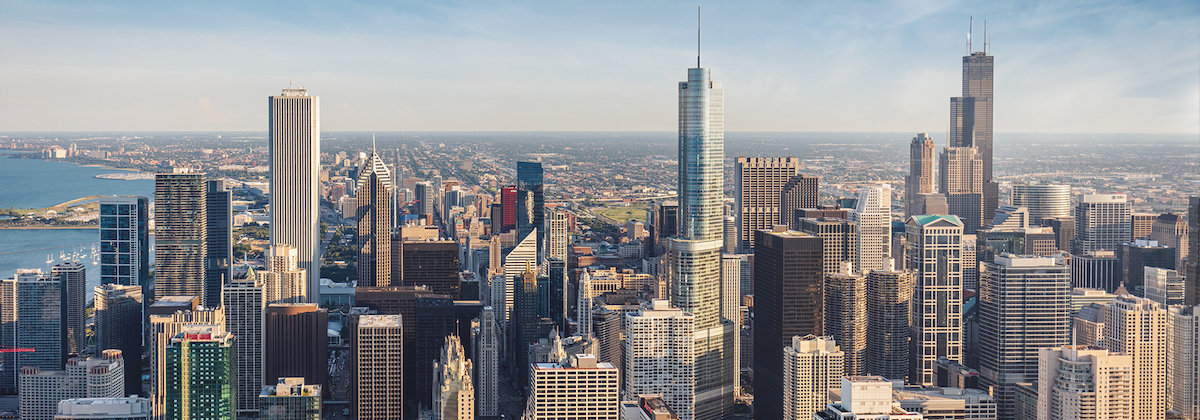
Most people do not expect to have to file a personal injury lawsuit during their lifetime. However, many people in Illinois will find themselves in a situation that warrants it.
When this happens, the aftermath can be confusing. Not only is it difficult to understand the law, but the legal process may seem long and difficult.
While hiring a personal injury lawyer is incredibly valuable, it is also helpful to know the basic steps to filing a personal injury lawsuit in Illinois.
Personal injury is a broad category of tort law. Many different types of accidents fall under the umbrella of personal injury law. Some of the most common types of accidents include car accidents, slip and falls, and wrongful death cases.
Seeking Medical Care

After any type of accident, it is important to immediately seek medical care. This may mean going to the emergency room, calling an ambulance, or making an appointment with your primary care doctor.
Medical treatment is important for your health and safety, but it also plays an important role in a personal injury lawsuit. When you visit the doctor, a record is created that may be used later in the lawsuit. This record will document the types and severity of your injuries, as well as the necessary treatment.
If you wait too long to get medical care, it may be difficult to prove your personal injury case. That’s because a defendant might argue that your injury resulted from or was worsened by activity that happened between the accident and when you went to the doctor.
Collecting Evidence
Depending on the type of accident, you will want to collect any evidence immediately. After a car accident, for example, you may take photographs of the damage or the position of the cars.
Evidence may include:
- Collecting witness information
- Preserving video evidence
- Taking photographs
- Saving defective products
- Invoices or estimates
Some evidence is only available for a short period. If you don’t collect it immediately, it may not be available later in the lawsuit.
Hiring a Lawyer
You should always speak with a lawyer as soon as possible after getting hurt. A lawyer can help protect you from unfair blame and explain your rights.
Furthermore, most personal injury lawyers charge a contingency fee. This means that you won’t pay them until the end of the case. At the end of the case, you only pay them a percentage of the damages you win. If they lose the case, you don’t pay them at all.
This means that there is no extra cost to hiring a personal injury lawyer as soon as you get hurt. They should get started immediately rather than have to scramble later in the game.
Before Filing a Lawsuit
Once you’ve gotten past the initial days of the accident, your lawyer will get to work. This work will determine whether or not you need to file a lawsuit or can settle the case outside of court.
Investigating The Accident
Your lawyer will help you investigate the accident. They will review any evidence that you have collected and collect their own. It might involve speaking with expert witnesses.
Through the investigation, they will also identify all possible defendants. There might be multiple parties responsible for your damages.
Filing Insurance Claims
Insurance is involved in most personal injury cases. Before going to court, you will almost always see if the defendant’s insurance company will pay for your damages.
In some cases, they might cover all of your costs. In others, they may only cover part of your expenses or none at all. In that case, you will probably need to file a lawsuit for full compensation.
Calculating Damages
Calculating damages is an important step in the personal injury lawsuit process. You will need to be specific about the damages that you are requesting in your pleading.
Your damages will include economic damages and non-economic damages. In other words, you can request payment for financial losses and pain and suffering. In certain cases, you may request punitive damages.
If you aren’t paid directly through the insurance company or the defendant, you will file a lawsuit to request damages.
Discovery and Trial Preparation
Your lawyer will engage in the discovery process during the pretrial stage. This is an important part of trial preparation.
Discovery can involve deposing witnesses to get more information that is helpful to your case. A plaintiff might also be deposed during the discovery process. Discovery can also involve reviewing important records such as medical records or business records.
An attorney can uncover the strengths and weaknesses in your case during discovery. This will help during settlement negotiations and trial.
Settlement Negotiations
Usually, during discovery or shortly thereafter, the parties will engage in settlement negotiations. This negotiation happens between the lawyers on behalf of their clients.
Most personal injury cases will be settled before trial. This doesn’t mean that the plaintiff doesn’t have a good case or that they are likely to lose. Rather, a settlement is often the best option for both parties. It provides a definite outcome and takes away some of the risks of trial. It also means that a plaintiff will get paid sooner than if they go through the entire trial process.
Jury Trial
If the parties do not settle, then the personal injury lawsuit will go to trial. In most cases, the case will be decided by a jury.
A trial usually involves:
- Motions
- Opening statements
- Witness examinations
- Admission of evidence
- Closing arguments
- Jury deliberation
During the trial, both sides will have an opportunity to present evidence and argue their case. The plaintiff goes first, and the defendant goes second in response.
If the jury rules in favor of the plaintiff, they will award a certain amount of damages. This may be all of the damages that the plaintiff requests, or it may be less.
In some cases, the jury may conclude that the plaintiff is partially responsible for the accident or their injuries. In this case, the damages are reduced by the plaintiff’s percentage share of responsibility. This is called modified comparative fault.
Contact a Chicago Personal Injury Lawyer to Learn More About Filing a Lawsuit
There are many steps to filing a personal injury lawsuit in Illinois. It’s always best to speak with a Chicago personal injury lawyer to help you through the process.
Attorneys of Chicago Personal Injury Lawyers are available to help with your personal injury lawsuit. We have over 30 years of combined experience in personal injury law. Call our office at (872) 324-4375 to schedule a free consultation and learn more about your legal options.
